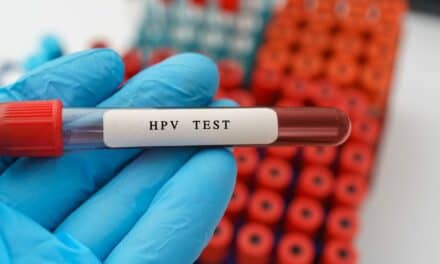Caris Life Sciences, Irving, Texas, has received FDA breakthrough device designation for the company’s MI Transcriptome companion diagnostic for the detection of gene fusions in solid tumors. The test is intended to assist clinicians in identifying patients who may benefit from treatment with specific targeted therapies. Caris plans to submit the assay for FDA premarket approval in late 2019.
“The FDA breakthrough device designation for the MI Transcriptome companion diagnostic assay is a significant step in advancing precision cancer care for individuals with specific genetic profiles who could benefit from targeted treatment options,” says W. Michael Korn, MD, chief medical officer at Caris. “This is also an incredible milestone for Caris and the company’s efforts to advance molecular science and cancer care by employing cutting-edge technology for the detection of highly actionable molecular alterations.”
The MI Transcriptome companion diagnostic is a next-generation sequencing-based in vitro diagnostic that analyzes RNA isolated from formalin-fixed, paraffin embedded (FFPE) tumor tissue. The test detects all classes of structural genetic rearrangements, including fusions, deletions, inversions, and duplications, and also measures expression and splice variants in specimens from patients diagnosed with cancer. The test received a breakthrough device designation for the detection of novel fibroblast growth factor receptor (FGFR) biomarkers, including gene fusions, in solid tumors.
Gene fusions are genetic alterations that frequently drive tumor progression and, as a result, are promising therapeutic targets for cancer patients. MI Transcriptome can differentiate fusions from other types of rearrangements, and can also distinguish among different fusion types. The test also has the potential to discover previously uncharacterized events, which is important when identifying patients who could have a strong response to targeted therapy.
The MI Transcriptome assay can also provide additional tumor profiling data to be used by qualified healthcare professionals in accordance with professional guidelines in oncology for patients with cancer. When approved, MI Transcriptome is expected to be the first companion diagnostic for use in identifying patients with fusions potentially eligible for pan-cancer treatment.
“RNA-based sequencing analysis is emerging as the best method to detect clinically relevant fusions,” says David Spetzler, MBA, PhD, president and chief scientific officer at Caris. “MI Transcriptome CDx, which is enabled by whole-transcriptome sequencing, provides information on all genes that are expressed in the cancer, which allows the most complete assessment of a patient’s tumor to inform more targeted treatment. We are delighted to have received breakthrough device designation and look forward to accelerating development of this assay.”
For further information, visit Caris Life Sciences.





